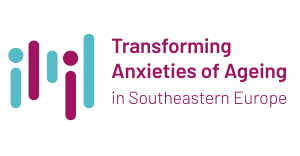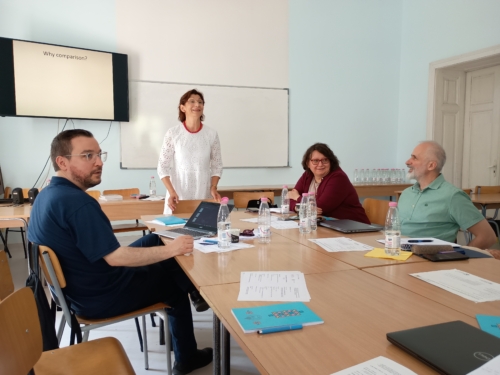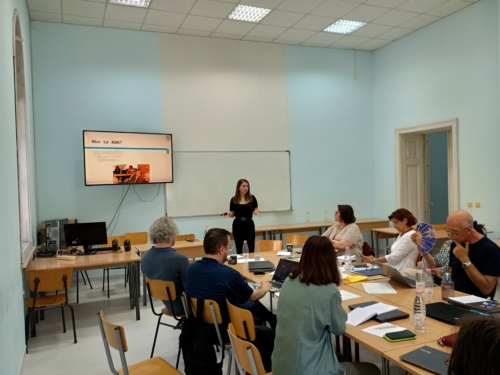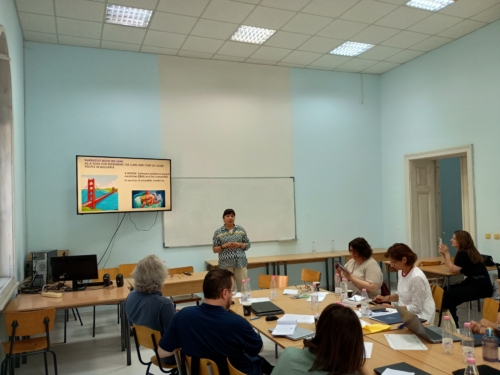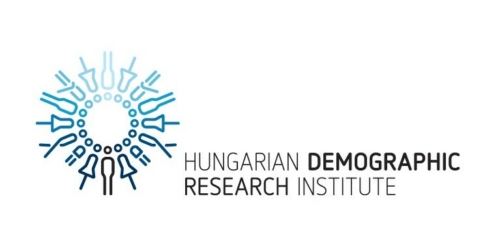Sofia Workshop Highlights: Tiny Homes, Oral History, and Dementia Advocacy
Our methodology workshop in Sofia on 20 June 2025 brought together project members and local experts for a day of rich discussion on ageing, memory, and intergenerational life in Bulgaria. The day began with presentations by researchers Iliya Iliev and Daniela Koleva, followed by a chapter workshop, where PhD students shared and discussed draft chapters in a constructive group setting. In the afternoon, we shifted to more practical insights through an exchange with the Alzheimer Bulgaria Association and a final presentation by public health expert Desislava Vankova. These sessions offered valuable perspectives on care infrastructure, dementia support, and medical humanities in the Bulgarian context.
Iliya Iliev: Tiny Dwellings, Tiny Families
In his presentation, ethnologist Iliya Iliev explored the changing patterns of intergenerational cohabitation in Bulgaria during the 1970s and 1980s. He examined how housing shortages and state policies shaped living arrangements, often resulting in multigenerational households in small apartments. These “tiny dwellings” not only constrained private space but also impacted family dynamics and generational relationships. Iliev’s work highlighted how structural factors and everyday adaptation shaped the experience of ageing and family life under late socialism.
Daniela Koleva: Comparative Oral History in Transnational Contexts
Historian and oral history expert Daniela Koleva gave a conceptual talk on the potentials and challenges of comparative oral history. She outlined key goals of comparative research: identifying similarities and differences across cases, estimating the scale of phenomena, contextualizing and extrapolating from case studies, and testing hypotheses or developing theoretical models.
Daniela Koleva (center) engages with workshop participants during her presentation
Drawing on examples such as Ronald Fraser, Riki Van Boeschoten, and Gerhard Botz, Koleva emphasized how global phenomena often take on local varieties, shaped by context-specific meanings, languages, and norms. She also addressed challenges in comparative work—including varying terminologies, cultural sensitivities, and differing national approaches to religion and secularism—and asked: What comparisons are meaningful? Who defines relevance?
Her presentation was particularly valuable for our project, as many team members have already conducted a substantial number of interviews across different countries and are continuing to carry out additional ones. Koleva’s insights provided important guidance for the comparative analysis of this material and opened up methodological perspectives for potential joint publications.
Alzheimer Bulgaria Association: Advocacy, Support, and Inclusion
In the afternoon, Maya Marinova, project coordinator at the Alzheimer Bulgaria Association, presented the organization’s vital work supporting people with dementia and their caregivers. In a context where gerontology is not yet recognized as a profession, the NGO is working to raise awareness and advocate for the rights and well-being of older people.
Maya Marinova (center) explains the mission of the Bulgaria Alzheimer Association
The Association runs several support programs, including the Alzheimer Café for family caregivers and the Friends in Memory group for people with early-stage dementia. These groups meet regularly with psychologists, offering emotional support, practical advice, and a space to share experiences. Alzheimer Bulgaria is also a member of Alzheimer Europe, Eurocarers, the World Patients Alliance, and the Dementia Friends Initiative. One of their recent projects, Memorable, aims to make cultural life more inclusive for people living with dementia.
Desislava Vankova: Narrative Medicine and the Ethics of Care
The final talk of the day was given by Desislava Vankova, a professor of social medicine and healthcare at the Medical University of Varna. Her presentation, titled “Narrative medicine as a tool for reframing care and cure of older people in Bulgaria,” explored the role of storytelling in enhancing empathy and understanding in clinical settings. She emphasized how narrative approaches can bridge the gap between medical professionals and older patients, shifting the focus from purely biomedical interventions to more holistic, person-centered care. Vankova’s insights added an important ethical and reflective dimension to our discussions on ageing and care.
Desislava Vankova (center) presents on narrative medicine and ethical approaches to ageing and care in Bulgaria
This workshop session in Sofia offered deep and diverse insights into the intersections of ageing, family, memory, and care—past and present. It also strengthened connections between academic research and local initiatives, reaffirming our project’s commitment to socially engaged and context-sensitive scholarship.
The project team alongside workshop participants
